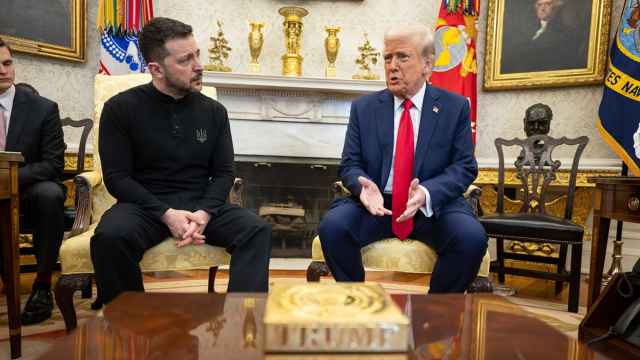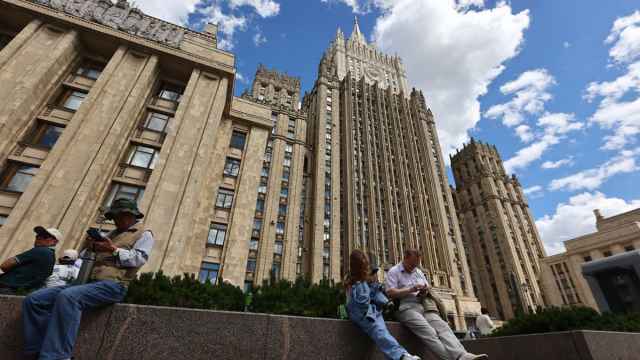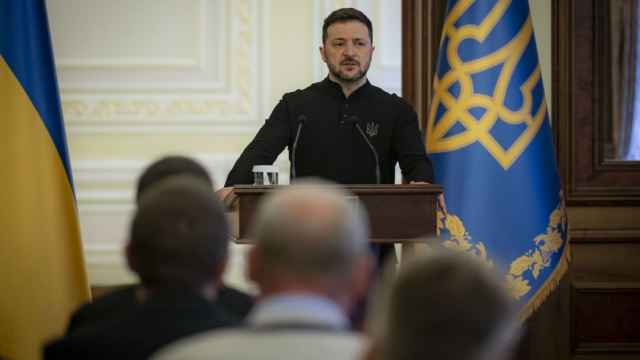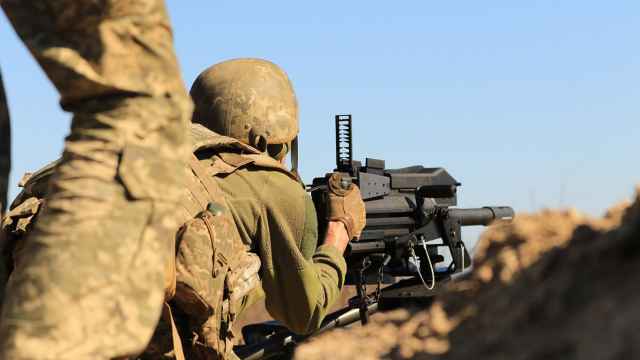KAZAN — Jealousy on the part of beaten Britons could be behind recent allegations that Russian athletics are rife with doping, Russia's sports minister, Vitaly Mutko, suggested Monday.
British newspaper the Mail on Sunday reported that Russian athletes were pressured to dope and that the head of the national drug test laboratory in Moscow had faced criminal charges related to the supply of banned substances.
With just over a month to go until Moscow hosts the World Athletics Championships, Mutko suggested that the spark for the claims could have been an underdog Russian team topping the medal table at March's European championships.
"Our successes don't sit well with many people, and they can't explain our success," he said when asked about the claims.
"Our team at the European championships, with a second-string roster, beat the main British team. Of course they can't understand where these sort of reserves come from."
"Our success is very simple — from the talent of our people, from coaching talent," he said, adding that Russia had done more in the fight against doping in five years than "Britain and Norway" had done in two decades.
Mutko alleged the doping claims were aimed at stripping the Russian national laboratory of its authority to conduct drug tests at next year's Winter Olympics.
"The goal is clear, to remove the status from our laboratory, so it isn't accredited, so another laboratory comes to Sochi, other people," he said.
Mutko's comments echoed those of senior Russian athletics figures. Both the head coach of the national team, Valentin Maslakov, and the head of the athletics federation, Valentin Balakhnichev, have suggested some sort of conspiracy aimed at discrediting Russian competitors.
Russia has long had a problem with positive doping tests among its athletes in several sports.
Five members of the Russian delegation at last year's Olympics have tested positive for banned substances during or after the Games, including discus thrower Daria Pishchalnikova, who was stripped of her silver medal and banned for 10 years in April.
A Message from The Moscow Times:
Dear readers,
We are facing unprecedented challenges. Russia's Prosecutor General's Office has designated The Moscow Times as an "undesirable" organization, criminalizing our work and putting our staff at risk of prosecution. This follows our earlier unjust labeling as a "foreign agent."
These actions are direct attempts to silence independent journalism in Russia. The authorities claim our work "discredits the decisions of the Russian leadership." We see things differently: we strive to provide accurate, unbiased reporting on Russia.
We, the journalists of The Moscow Times, refuse to be silenced. But to continue our work, we need your help.
Your support, no matter how small, makes a world of difference. If you can, please support us monthly starting from just $2. It's quick to set up, and every contribution makes a significant impact.
By supporting The Moscow Times, you're defending open, independent journalism in the face of repression. Thank you for standing with us.
Remind me later.





